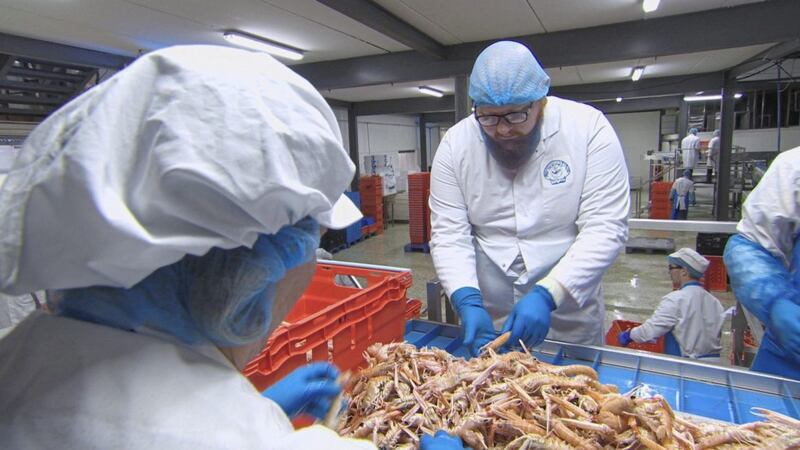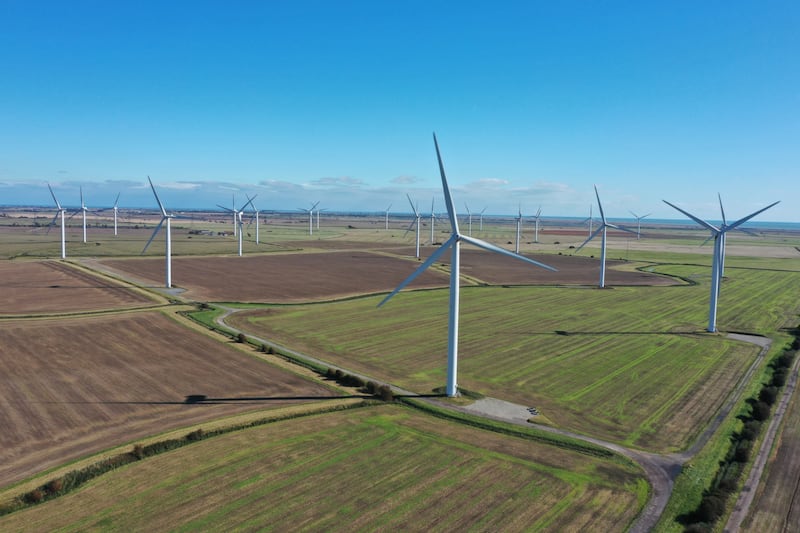NORTHERN Ireland's already sluggish economy could shrink by a whopping NINE per cent over the next two decade as there may not be enough people in the post-Brexit era to do all the available jobs.
A report from the CBI claims that if EU migration is cut by 50 per cent, the north's economy will be five per cent smaller by 2041.
But if that low inward migration scenario also applied to international workers, it would decrease Northern Ireland’s GDP by 9.1 per cent.
Last week the Migration Advisory Committee (MAC) said the government should effectively end low-skill migration after Brexit, would which hit many sectors in Northern Ireland such as food processing, agri-food and hospitality.
In response, CBI Northern Ireland has launched a new report ‘All Together Better: Accessible Labour – a Necessity for Regional Economic Prosperity’ which highlights the acute need for local private and public-sector employers to have continued access to the people and skills they need to succeed post-Brexit.
Citing the north’s demographic challenges, alongside the persistent exodus of young people to study and work abroad, the report demonstrates how local employers have become reliant on a steady inflow of international workers provided by EU membership and the Common Travel Area.
CBI NI director Angela McGowan said: “Northern Ireland faces a number of specific challenges when it comes to access to skills. With the workforce set to shrink further in years to comes, both as a result of demographic changes and Brexit, our current skills gaps – both high skilled and low skilled - in areas like education, healthcare, hospitality, agri-food and digital industries look set to be exacerbated causing long term damage to the economy.
“The MAC report identified significant challenges for Northern Ireland if access to low skilled labour was restricted, negatively impacting our agri-food sector and a creating a risk that NI firms could relocate to the Republic of Ireland to ensure continued access to migrant skills.”
The 'All Together Better' report contains several key recommendations for a post-Brexit immigration system, which ensures employers in Northern Ireland can continue to access the people and skills they need. They include:
• Allow firms of all sizes to benefit from better access to people and skills from the EU and around the world;
• Allow firms to have access to willing workers of all skill levels;
• Focus on forming strong linkages with people from the EU and across the world as Northern Ireland seeks to create and enhance external trade
• Recognise that continued access to migrant labour, as well as skills, is required to avoid critical shortages across all sectors – public and private;
• Allow firms to continue to easily move staff to and from Europe under any new system that replaces free movement.
Ms McGowan added: "The MAC identified the challenges around migration but failed to offer any solutions.
"It is vitally important that whatever immigration system we adopt fulfils a number of basic tests.
"It must be open, controlled and work for all parts of the UK, whilst recognising the specific challenges we face in Northern Ireland."








